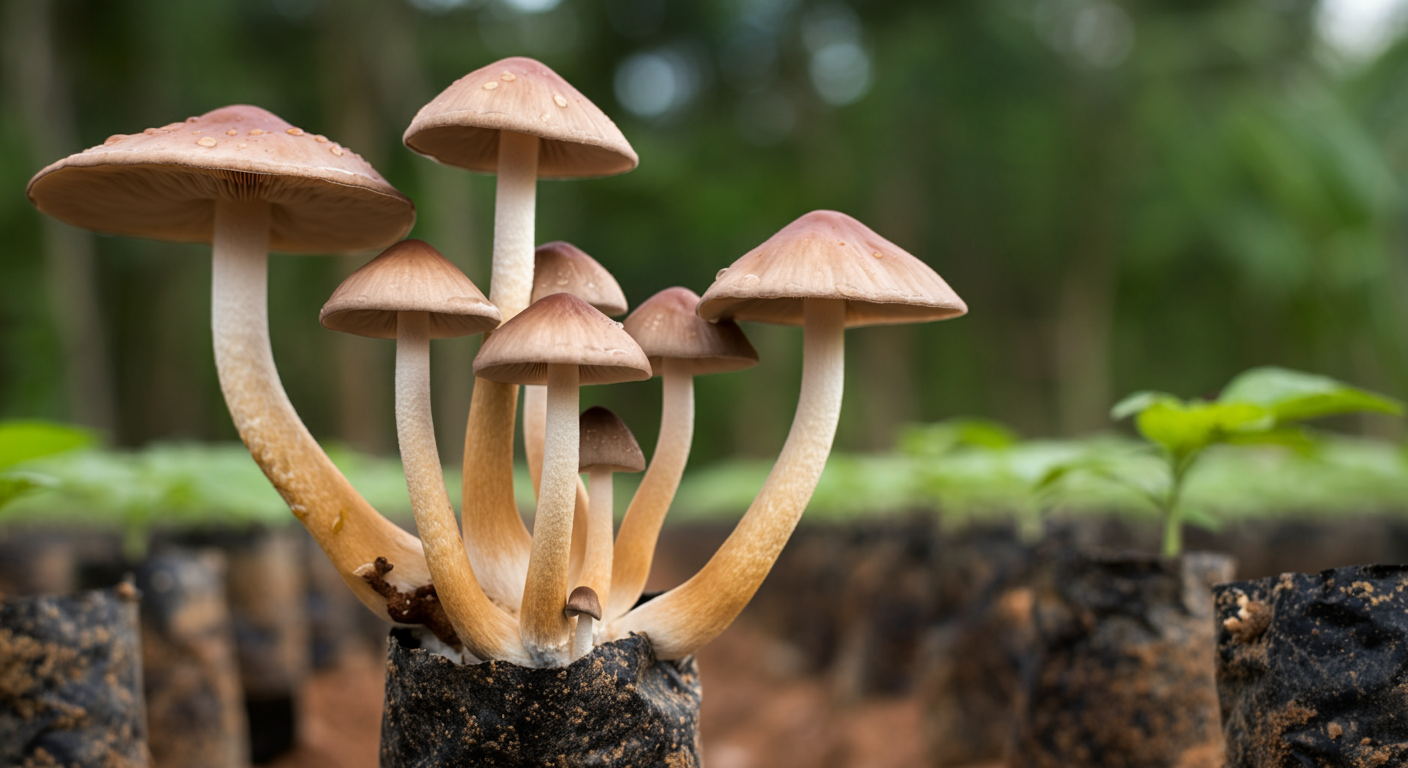How Mushrooms Can Benefit Agriculture
In the quiet hum of nature, mushrooms play a subtle yet transformative role in agriculture. Often overlooked, these fungal wonders offer solutions to some of farming’s most pressing challenges—enhancing soil health, reducing waste, and even providing sustainable alternatives to traditional crops. As we explore their benefits, it becomes clear that mushrooms hold a quiet power in shaping a more resilient and balanced agricultural future.

1. Enriching Soil Health
Mushrooms are natural decomposers, breaking down organic matter into nutrients that plants can easily absorb. Mycorrhizal fungi, in particular, form symbiotic relationships with plant roots, extending their reach and helping them access water and minerals like phosphorus and nitrogen. This partnership reduces the need for synthetic fertilizers, fostering a more organic and sustainable growing process.
2. Reducing Agricultural Waste
Farming generates significant organic waste—from crop residues to manure. Mushrooms thrive on this waste, converting it into valuable compost or even edible fungi. Oyster mushrooms, for example, can grow on straw, coffee grounds, or sawdust, turning what would otherwise be discarded into nutritious food. This circular approach minimizes waste while producing additional harvests.
3. Natural Pest and Disease Control
Some fungi act as natural biocontrol agents, protecting crops without harmful chemicals. Species like Trichoderma suppress soil-borne diseases, while others outcompete pathogenic fungi. Farmers who integrate mushrooms into their systems often find that their plants become more resistant to pests and infections, reducing reliance on pesticides.
4. A Sustainable Food Source
Mushrooms are highly efficient to cultivate, requiring minimal space, water, or energy compared to traditional livestock or crops. Varieties like shiitake, oyster, and button mushrooms provide protein, fiber, and essential nutrients, offering a low-impact alternative to resource-intensive foods. For small-scale farmers, mushroom cultivation can be an accessible and profitable addition to their operations.
5. Carbon Sequestration and Climate Resilience
Fungi play a role in carbon storage by breaking down plant material and locking carbon into the soil. This process not only enriches the earth but also helps mitigate climate change. Additionally, mycelial networks improve soil structure, making land more resistant to erosion and drought—a crucial benefit as weather patterns become more unpredictable.
Embracing the Fungal Future
Mushrooms remind us that some of the most effective solutions in agriculture are those that work with nature, not against it. By integrating fungi into farming practices, we can cultivate healthier soils, reduce waste, and create more sustainable food systems—all while moving at nature’s own gentle pace.
Perhaps the future of farming lies not in loud technological revolutions, but in the quiet, steady work of mushrooms beneath our feet.